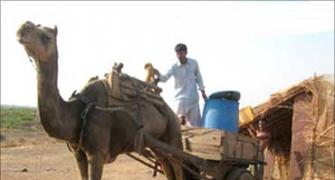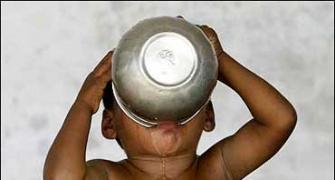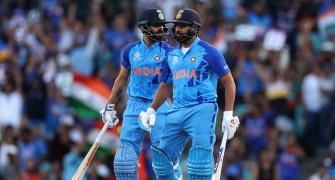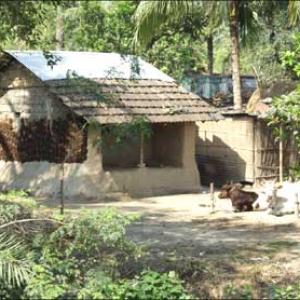 With fast expanding Indian population and rapid urbanisation, water poses a key challenge to not only the country's growth but also issues related to it are 'sources of conflict and border disputes,' a US official has said, seeking proper management of the scarce resource.
With fast expanding Indian population and rapid urbanisation, water poses a key challenge to not only the country's growth but also issues related to it are 'sources of conflict and border disputes,' a US official has said, seeking proper management of the scarce resource.
"Not only are water issues critical to the health and development of India, they are also sources of conflict and border disputes, making proper management of this scarce resource even more critical," assistant secretary of state for South and Central Asia, Robert Blake, said at the India Donor Roundtable.
"It is important that we take the time to discuss these key issues in forums such as this, and help develop innovative solutions to the water-related challenges India will continue to face," he said.
Blake said the magnitude of India's water needs cuts across income levels, urban and rural populations and all industrial sectors.
Approximately 12 per cent of India's over 1 billion people still lack access to safe drinking water and almost half of India's 626 districts were drought-stricken in 2009.
Yearly monsoons supply more than 75 per cent of India's annual precipitation over a period of less than three months, making storage and transport capabilities critical, Blake said.
In urban areas, provision of water can be so sporadic that families at all income levels are left to purchase water trucked in from rural areas, or water taken from other communities and re-sold by 'water mafias.'
Some 40 per cent of households do not have reliable access to clean water and only 36 per cent have sewage systems, Blake noted.
Observing that the health impacts are enormous, he said currently, water-borne diseases -- such as diarrhoea, dysentery, and cholera -- are the biggest single cause of child mortality in India.
Increased focus on water, sanitation and hygiene, known as the WASH sector, is critical for improving India's public health, he said.
"The challenges go beyond drinking water and sanitation.
Approximately 80 per cent of India's water is used in agriculture. However, in many parts of the country farmers are still without reliable access," Blake said.
For example, in Maharashtra, only 16 per cent of the state's cultivable lands are under irrigation, leaving the remaining farm lands reliant on seasonal rains.
This lack of access to water, compounded by inefficiencies in canal irrigation, can pose threats to India's food security, he said.
"As pressing as water issues are now in India and around the world, they will become even more important in the near future," Blake said.
Experts predict that by 2025 nearly two-thirds of the world's countries will be water-stressed -- which is defined as demand for water exceeding availability, or when poor quality restricts its use.
India is expected to be water stressed by 2020, just 10 years from now, Blake said. "India's continuing population growth and the predicted impacts of climate change, including shifts in precipitation and glacier melt, make this challenge one that cannot be addressed by governments alone," he said.









